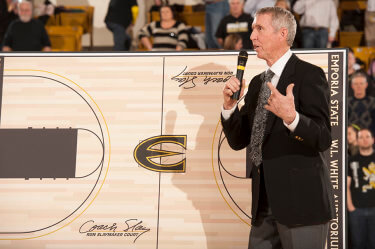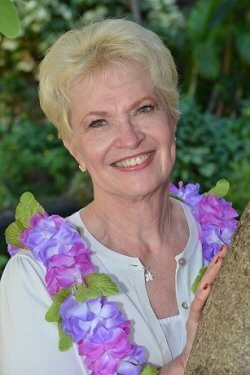Teaching and coaching are among the most rewarding yet challenging professions. Teachers must create instructional environments that motivate learning and develop student skills. Doing this successfully, demands dedication and lots of time spent planning, mentoring, and assessing. Frequently, the more time teachers devote to these tasks the better the learning and performance outcomes. But without proper work-life harmony, both teachers and coaches risk burnout (Altfeld, Mallett, & Kellmann, 2015).
Interestingly, those who enjoy longevity in teaching and coaching seem to find a reasonable work-life balance (Raedeke & Kentta, 2013). While longevity in any profession doesn’t necessarily confirm effectiveness, it does hint at some level of insight and knowledge. So, when seeking tips and strategies to improve balance and reduce stress, it makes sense to listen to advice from experienced colleagues. What follows is an account of two life-long teachers who continue to inspire others with their energy, passion and commitment to young people.
Ron Slaymaker
In the state of Kanas, Ron Slaymaker (i.e. Coach Slay) is a familiar name in education and the sport of basketball. Coach Slay is probably best known for his time as the Head Men’s Basketball Coach at Emporia State University (ESU), where in over 28 seasons he amassed 465 wins, received NAIA national coach of the year honors in 1986, and was a 6-time NAIA District 10 Coach of the year (Larsen, 2013). Coach Slay is a member of (4) different hall of fames and the basketball court at ESU is named in his honor.

In a career that spans over 60 years, Coach Slay is well-known for his high energy, positive attitude, caring personality, and great sense of humor. One of Coach Slay’s former assistant coaches and retired Hall of Fame coach at Ottawa University (KS), Andy Carrier described him “… as a servant leader, a doer (i.e. a participant not a spectator), competitive, and fun.”
He has touched countless lives and continues to be a role-model and mentor for coaches today. Brette Tanner, Associate Head Basketball Coach at Abilene Christian University, shared his experience playing for Coach Slay:
“Coach Slaymaker is a man who I truly admire. He got to know every player regardless of status on the team…I was extremely fortunate to have my senior season also be his final season before he retired. I got to witness not only how special all of his current and former players were to him but how special he was to all of us. The amount of people that came back to honor him that final season was a true testament to how many lives he touched (Brinkley, 2016, para 7).
Coach Slay retired from ESU in 1998 and spent the next 17 years officiating youth sports, fulfilling a variety of speaking engagements, and participating in local community projects. In 2014 he applied for and accepted the position of head girls’ basketball coach at Chase County High School (KS). In the past four seasons, he has lead the Bulldogs to two state tournament appearances.
Sharon Stoll
Dr. Sharon Stoll (aka – Doc) has been educating students for over 50 years. A former athlete and coach, Doc is currently a Professor in the Department of Movement Sciences at the University of Idaho, and is the Director of The Center for ETHICS*. The Center for ETHICS* was established in 1991 to return the classical concepts of justice, integrity, and responsibility in competition through education, research, and applied ethical intervention programs. The Center was the first of three institutions in the United States to offer the study of moral development in sport (Dr. Sharon Kay Stoll…, 2017).

For her work in moral development and character education in sport, Dr. Stoll has been featured on national media programs including, Fox Sports, ESPN, and Nightline. She served as a consultant for the Atlanta Braves, University of Georgia Football, the University of Alabama Football, and many others. In 2007, Doc was named one of the 100 Most Influential Sport Educators in America. A list that included Bob Costas, Tiger Woods, Pat Summitt, and Mike Krzyzewski (Movement Sciences Faculty, 2018).
For all her accolades outside the classroom, Dr. Stoll may be best known for her work in it. When former students were asked about their experience under Doc, they describe her as selfless, a role-model, firm, and compassionate. “Dr. Stoll is conscientious but tough. Respectful, but willing to tell the hard truth. Most important, Doc always made time to mentor and guide me as a student and human being,”shared Justin Barnes a former doctoral student and current Assistant Professor at the University of Idaho.
Sharing a similar sentiment, doctoral student Kevin Bryant (Athletic Director, Redmond High School, OR) stated, “She loves people and is a natural mentor to them. She is super bright and a dedicated student herself. I love that lady with all my heart.”
Coach Slay and Doc are two great examples of teachers that embrace their role as educators by implementing the following four practices when leading young people: (1) share your passion, (2) be prepared, (3) be adaptable, and (4) care.
Share Your Passion
The ability of a teacher to share their enthusiasm is paramount for long-term success. Coach Slay’s enthusiasm stems from his positive attitude and being able to find the good even when something negative happens. Long-time Perry-LeCompton School (KS) teacher and coach, Pat Hupfauf noticed Coach Slay’s ability to share his passion when Coach Slay was a guest speaker in his class.
“…he (Coach Slay) always has positive energy in everything he does. He is always enthusiastic and even at age 81, he came to speak to my class this fall and he was amazing. He is very caring with people and it shows.”
Doc believes it is important to have fun while sharing your passion, “… if you enjoy the work, and are enthusiastic, the students will accompany you on the journey,” states Doc. She demonstrates her passion by staying up to date on current trends and issues in society. For example, when health issues surrounding concussions became a national discussion with ethical implications she quickly learned everything she could about the topic. Armed with new knowledge and relevant information, Doc was able to share her enthusiasm for learning while enhancing the learning environment for her students.
When you observe Coach Slay or Doc in a teaching moment, there is a sense they are having fun. Having fun in your role as a teacher is not a skill that can be developed, but a result of embracing the opportunity to share what drives you by letting others feel your excitement for learning, the subject being taught, or the activity itself.
Be Prepared
A life-time of work as an educator may lead to increased knowledge and improved practice. However, a person’s personal and professional growth is more likely driven by a deliberate attempt to keep learning and stay competent as a professional (Greene, 2012).
After almost 60 years working with young people, Coach Slay continues to operate with a high-level of energy and is involved in a variety of activities. He currently serves as the assigner for the Lyon County Officials Association, frequently speaks to youth groups, serves on the board of directors for three organizations, officiates volleyball matches and track meets, and organizes youth basketball tournaments in the summer.
“For over 40 years now, I have been a little obsessed with centenarians. My goal is to reach 100. I read their lists of why they believe they reached 100 and have formed my own list. One thing is you always have to stay busy. But you have to make sure you work hard and do a good job in the process. If you are busy with too many tasks, it will be difficult to be prepared and competent in all of them.”
In 50 years of teaching Dr. Stoll has developed a methodology built on consistency, fairness, and responsibility. “To be competent know the discipline and keep current. Most importantly, have a plan, be fair, be timely in everything you do from grading papers to arriving at school and meeting your responsibilities,” states Doc.
Former doctoral student, Susan Steele (Assistant Professor, Lewis-Clark State College) found success under this approach. Steele stated, “She is a consummate professional educator and you always know what to expect from Doc. She has a consistent, compassionate, yet firm style.”
Coach Slay and Doc provide two great examples of teachers that are always prepared. By making a deliberate attempt to engage in learning activities, teachers can develop life-long habits that keep them competent and effective throughout their career.

Be Adaptable
The teacher is more than a technician, they must manage on a daily basis a variety of tasks oftentimes unrelated to the actual practice of teaching (Mallett, Rynne, & Dickens, 2013). This may include pressure from administrators, parents, and community members. The ability to be adaptable will likely determine a teacher’s long-term impact. After accepting the head girls’ basketball position at Chase County High School, Coach Slay initially took the same approach to coaching high school girls as he did to coaching college men.
“The game is the same, so I went into my new role using the same approach. But, there are many differences that I had to adjust to. I had no clue that I would want them to learn and get better more than they would. It was my life, but just a game to them. I was lucky my first year in that I had a good senior group and we adjusted to each other at the same time. There was a winning culture at Chase County with the girl athletes. They had won 4 straight state championships in softball and would win a 5th that year. I can look back now and see that in 4 years we have come a long way together in establishing that same competitive culture in basketball. I was way too serious and they were not serious enough. Little did I know that girls are serious but show it in different ways. I think that now we meet somewhere in the middle and it is working out just fine. Remember to be flexible. This can be hard as we are all pretty set in our ways.”
Dr. Stoll’s ability to meet the needs of the learner and adapt is recognized by her students. Former student, Justin Barnes remembered how she embraced Online education during its infancy, “Doc was one of the first teachers to embrace technology and the positives it offers students learning online. Though Doc’s a traditionalist, she mastered online education to aid populations in need,” stated Barnes.
In another example, current doctoral student, Aubrey Shaw has felt the impact of Dr. Stoll’s ability to adapt in working with her on an area outside Doc’s expertise.
“My supporting area for the doctorate is in special education because I want to work with athletes with disabilities. When I was going through the classes Doc would always say, ‘I am learning so much from you taking these classes,’ because we would always discuss the classes I was in. She was not afraid to learn new material to help me as a student.”
While, standing firm and holding others to a high standard is the role of a teacher, it does not imply that the teacher is required to remain rigid and ignore other potential methods in reaching the learner.
Care
Both Coach Slay and Doc were identified by former colleagues, players, and students as being servant leaders. Common characteristics associated with servant leaders include the ability to make time for others, believe in others, and be unselfish (Greenleaf, 1990). By exhibiting servant leader type characteristics as a teacher, students will know the teacher cares about them as people and desires to help them accomplish their goals.
Coach Slay values his role as an educator and recognizes that he must take initiative in connecting with his student-athletes in order to assist them in achieving their goals. Over the course of a season he will create opportunities for this team to have shared experiences. A couple of years ago the UConn Women’s basketball team was playing Kansas State University in Manhattan, KS. Coach Slay took his team to the game to expose them to one of the greatest teams in basketball history. More importantly, an experience they could share together. Taking the time to share an experience with his team is an example of Coach Slay’s willingness to help each of them grow as people. “He always wants to make a difference in the lives of young people,” shared Debbie Carrier (Retired Head Women’s Basketball Coach, Johnson County Community College, KS), “he has always cared about the student-athlete.”
When asked what advice she would give teachers, Dr. Stoll stated, “Care about the job and what it means and love the students…all of them even the ones that are hard to love.” Doc’s caring approach has not been lost on current doctoral student, Aubrey Shaw.
“She always tells me, ‘we are on the journey together.’ She takes the time to help her students that need extra help or she goes and finds the help. I know I am not the best writer and as Doc says, ‘Aubrey, you have many hiccups.’ However, that does not stop her from working with me. She has accepted my hiccups and works with me so we can both overcome them. Until I met Doc and starting talking with her. It was only then I realized she sees the potential in me and believes that I can make a difference”
When students or student-athletes are asked what they remember most about their best teachers and coaches, they will often recall how much they cared about them as people. A teacher that cares has a sincere interest in helping young people.
Conclusion
Both Ron Slaymaker and Sharon Stoll have embraced their role in creating learning environments for students to thrive and grow. Although each is considered an expert, both continue to learn and demonstrate a sincere interest in helping young people by sharing their passion, being prepared, being adaptable, and demonstrating that they care.
References
Altfeld, S., Mallett, C. J., & Kellmann, M. (2015). Coaches burnout, stress, and recovery over a season: A longitudinal study. International Sport Coaching Journal, 2(2), 137-151. http://dx.doi.org/10.1123/iscj.2014-0113
Brinkley, T. (2016, April 20). Abilene Christian men’s basketball associate head coach Brette Tanner. Behind the Clipboard. Retrieved from: https://collegecourtreport.com/2016/04/20/behind-the-clipboard-abilene-christian-mens-basketball-associate-head-coach-brette-tanner/
Dr. Sharon Kay Stoll: Celebrating 50 years… (2017). In-Motion, 1(3).
Greenleaf, R. (1990). Servant Leadership: A journey into the nature of legitimate power & greatness. Mahwah, N.J.: Paulist Press.
Greene, R. (2012). Mastery. New York: Penguin Books.
Larsen, G. (2013). Slaymaker court announcement tonight. Emporia State University Hornets. Retrieved from: http://www.esuhornets.com/news/2013/2/28/MBB_0228133948.aspx
Mallett, C., Rynne, S., & Dickens, S. (2013). Developing high performance coaching craft through work and study. In Potrac, P., Gilbert, W., & Denison, J. (Eds.). Routledge handbook of sports coaching(463-475). New York, New York: Routledge
Movement Sciences Faculty (2018). University of Idaho(2018). Retrieved from: https://www.uidaho.edu/ed/mvsc/faculty/sharon-stoll
Raedeke, T. D. & Kentta, G. (2013). Coach burnout. In P. Potrac, W. Gilbert, & J. Denison (Eds.), Routledge Handbook of Sports Coaching(424-435). New York, NY: Routledge.
